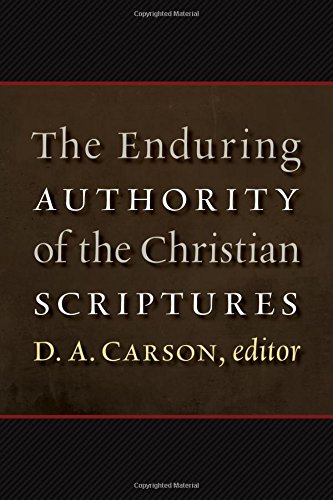A Brief Book Summary from Books At a Glance
Editor’s Note: Today we continue our series of “bonus” summaries covering all thirty-six chapters of the monumental volume, The Enduring Authority of the Christian Scriptures (D.A. Carson, ed.).
Chapter 31: Knowing the Bible Is the Word of God Despite Competing Claims
by Te-Li Lau
(Summarized by Mark Coppenger)
Lau, a New Testament professor at TEDS, demonstrates how four scriptures – the Bible, Book of Mormon, Qur’an, and Buddhist Sutras – stack up against one another according to three criteria – 1. explicit claims to be God’s word; 2. supporting evidence for its implicit claims; 3. the testimony of the Holy Spirit.
As for the first criterion, it’s something of a wash (though, it’s a bit like comparing apples and oranges, for, unlike the Christian scripture, the canons of Mormonism, Islam, and Buddhism are “vast and fluid”). Consequently, self-attestation claims “in and of themselves cannot persuasively establish the authority of a sacred text.”
Regarding the second, the Bible stands tall for historical reliability (shown, for example, by exacting textual criticism and by the willingness of disciples to face martyrdom) and for coherence and unity (according to progressive revelation). In contrast, the other three religions. . .
[To continue reading this summary, please see below....]The remainder of this article is premium content. Become a member to continue reading.
Already have an account? Sign In
